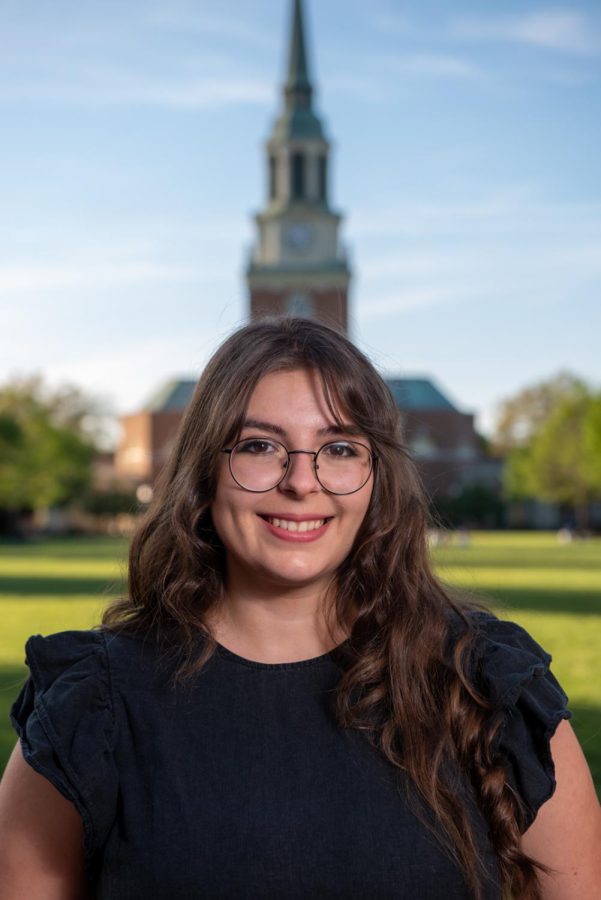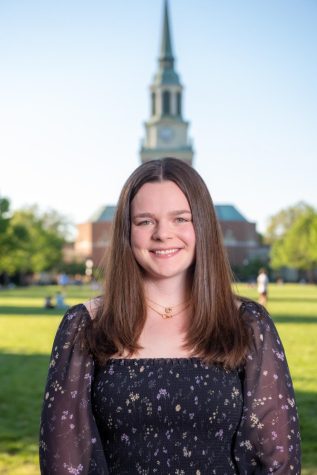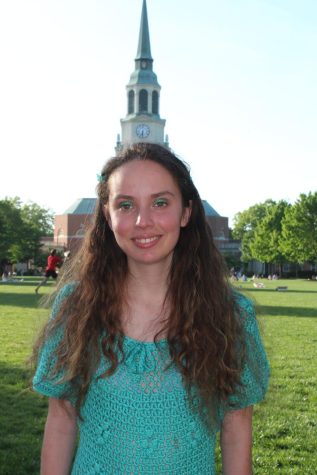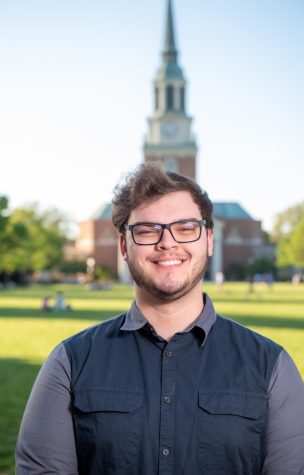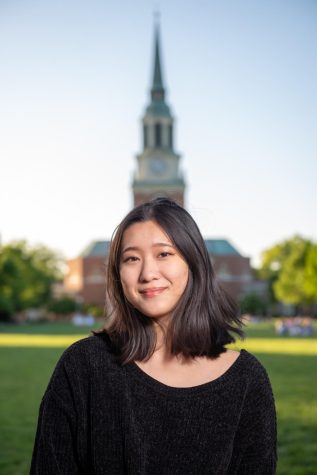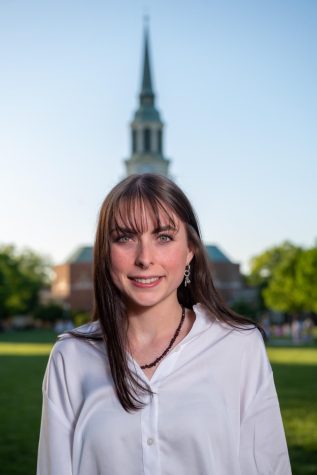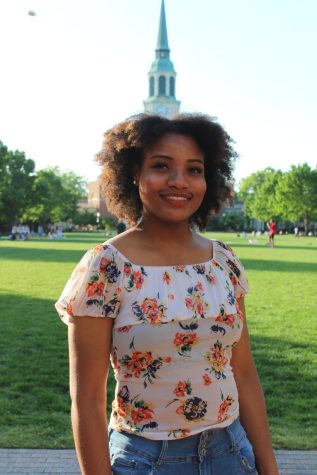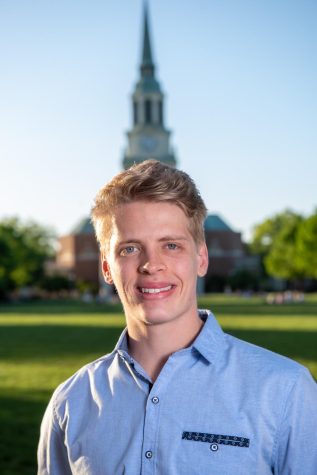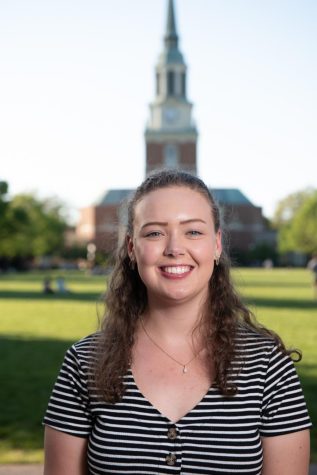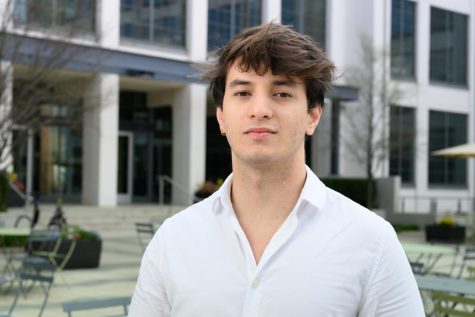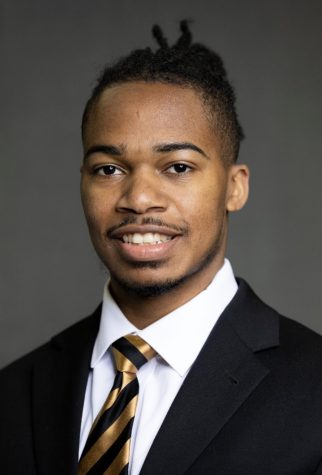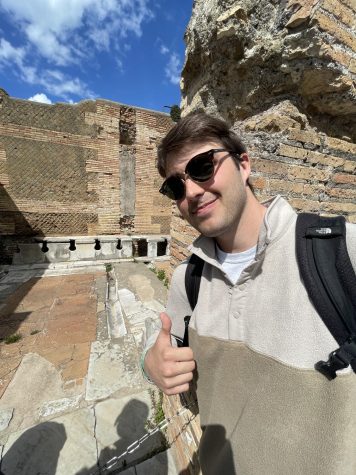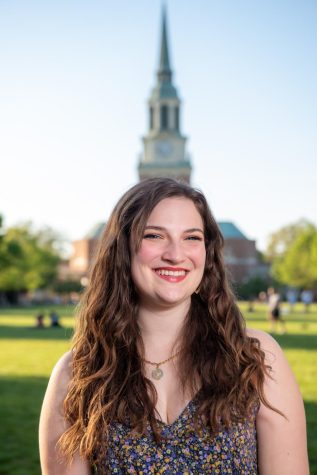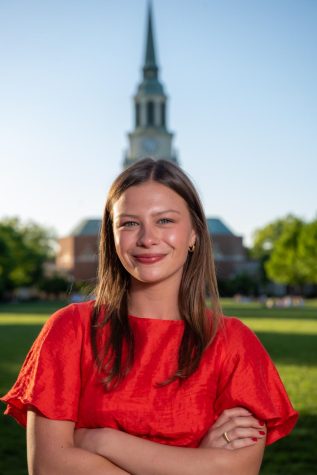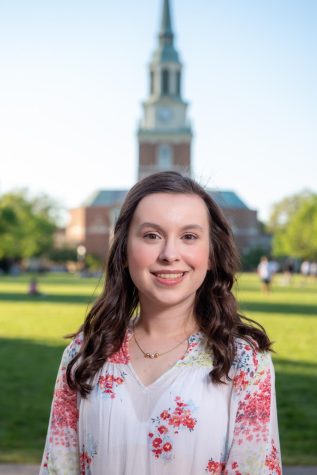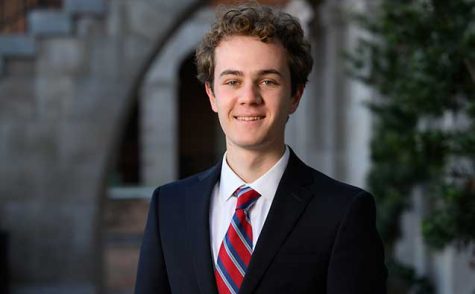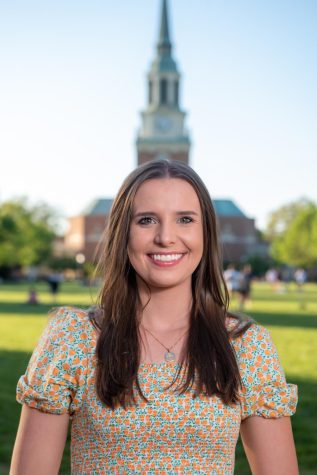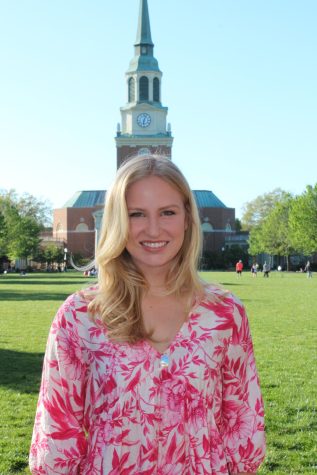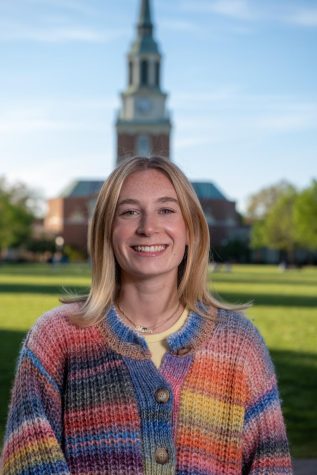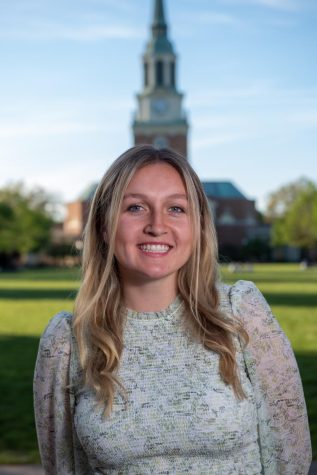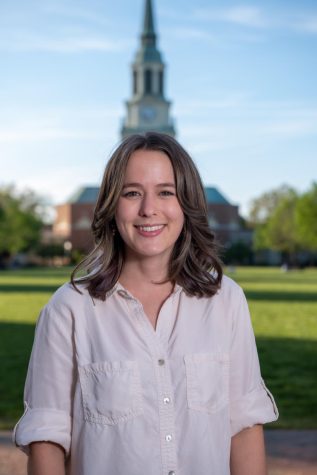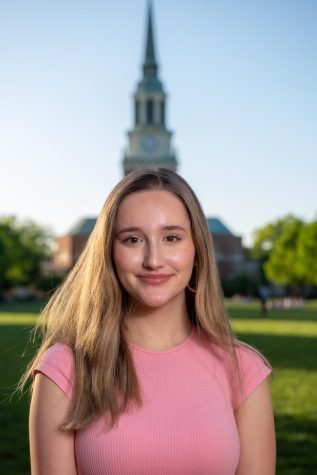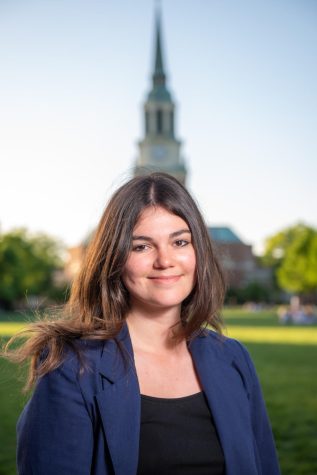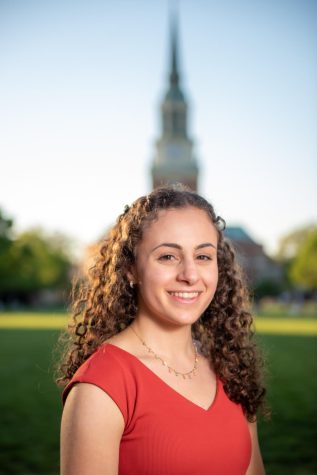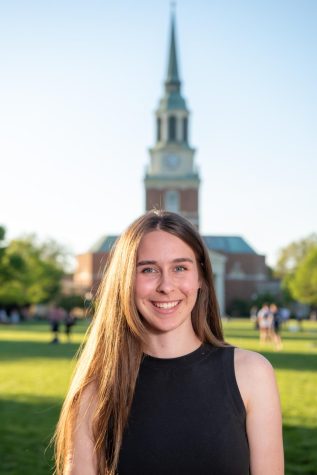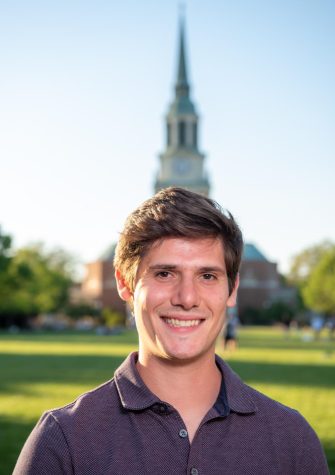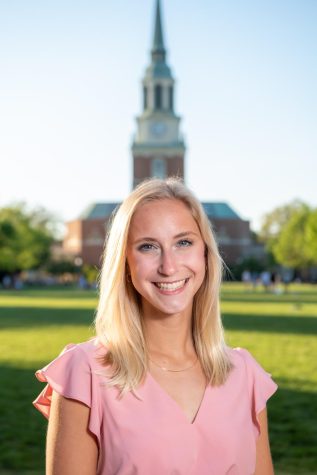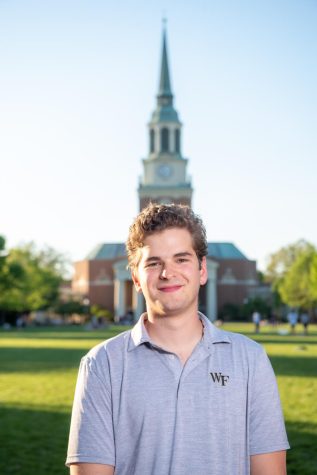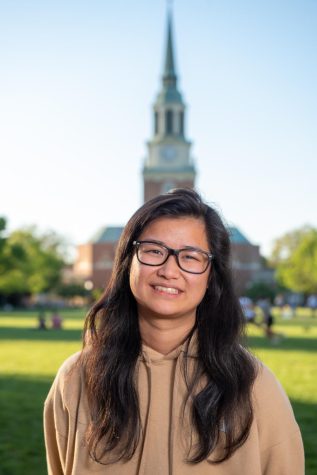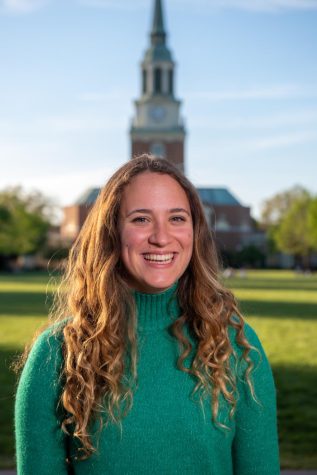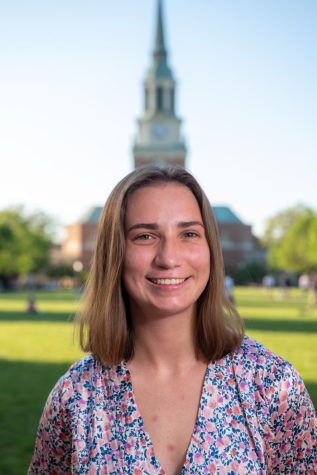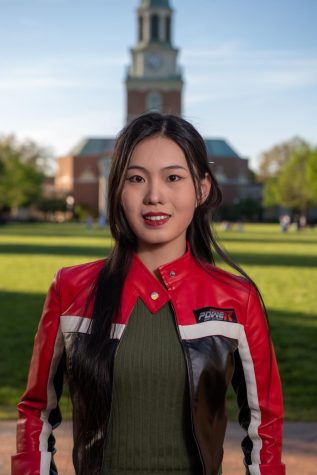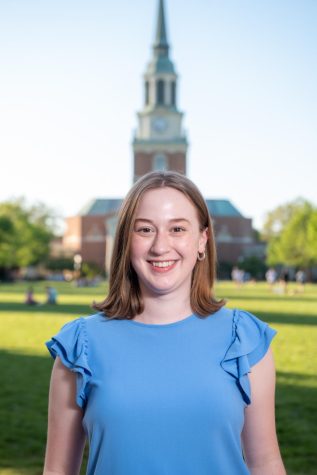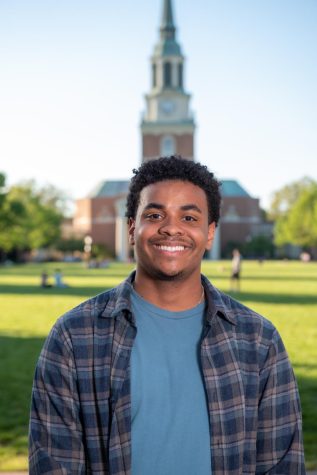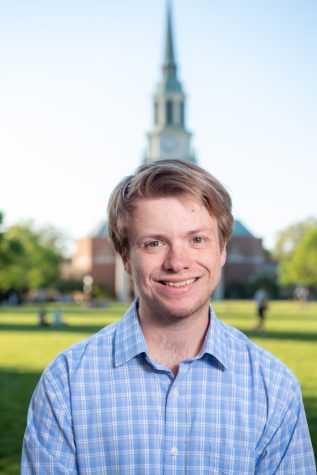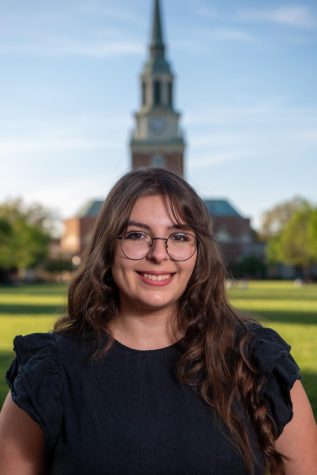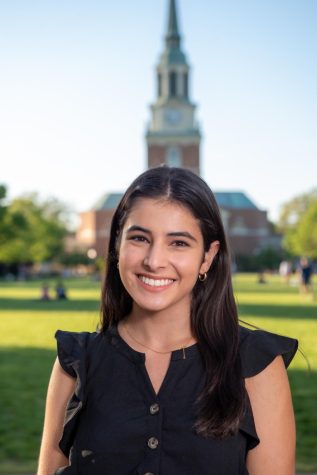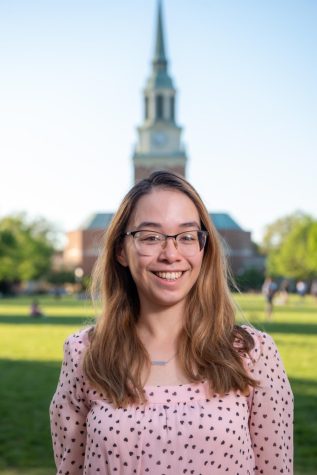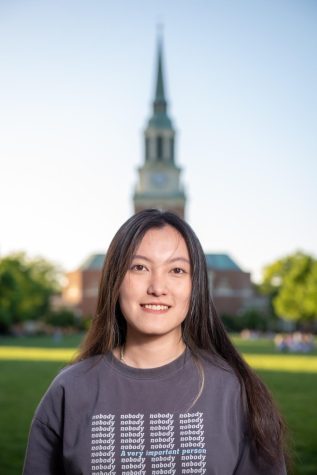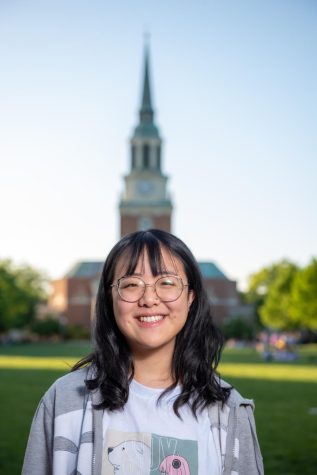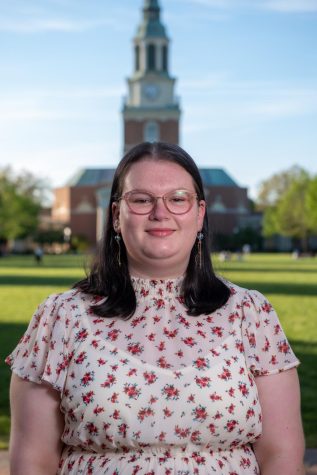Sociology: Dianna LaTerra
There’s a variety of avenues for students to discover their passions. For graduating senior Dianna LaTerra, her path began to fall into place well before her time at Wake Forest.
LaTerra, a sociology major out of Waxhaw, N.C., became interested in social justice and equity work due to her experiences growing up. Her father was placed on a fixed income due to disability, and he became the sole source of income for the household after LaTerra’s mother passed away.
“With my dad on fixed income, I had to devote a lot of my time to making my own money and having to take on a lot of individual responsibility,” LaTerra said. “It forced me to be more independent and also made me aware of how many other people have to do that, which is a lot more than I think a lot of people see.”
LaTerra bore witness to resource disparities in her community first-hand. She said that these experiences lead to her asking questions about equity and resource distribution even before she decided to pursue a degree in this field.
“From a very early time, I was aware of disparities in education,” LaTerra said. “When you go to a low-income school like that, it’s super easy to pick up even if you’re not interested in social justice.”
Though originally thinking about going into the business school, LaTerra found that the sociology department felt more like home to her. Despite this, her time preparing for a business major allowed her to explore her love for research.
“I think Wake Forest was the first place that I really got to delve into what it means to do research,” LaTerra said. “I mean, you obviously learn the scientific method in high school, but I got to open my eyes to a whole world of, ‘Oh, you don’t have to do hard science in order to do research.’”
Her decision to turn to the sociology department came after her experience in her principles of sociology course, taught by Dr. Amanda Gengler. It was there that LaTerra realized just how imperative social outreach was.
In this course, students were assigned a group project in which they were given a mock family and a set income with which to create a budget. The purpose of this project was to help show students how wealth disparities tend to occur. One of the groups happened to have an income equivalent to the fixed income LaTerra’s father is given by social security.
“This group gets up, and it’s almost like they don’t view this situation as even feasible in real life,” LaTerra said. “The whole time they’re like ‘Oh my gosh, I can’t even imagine how anyone could ever live like this.’”
She continued: “They even went as far as adding things that weren’t even in the project. So they said stuff like ‘we had to sell our plasma on the black market,’ and they were giggling about it.”
Though the group’s presentation sparked feelings of frustration in LaTerra, it also opened her eyes to the importance of careers in social justice and equity.
“It occurred to me: ‘Oh, you’ve never been around somebody or never been in a situation where you’ve had to consider that somebody makes this income,’” LaTerra said. “That’s why you’re making it a joke. That was a wake-up call for me that I need to be doing this kind of work and pursuing this kind of work.”
Looking toward her future, LaTerra hopes to pursue a doctorate in sociology or go to law school. Additionally, her involvement in the arts at Wake Forest has fueled her interest in pursuing a career working for greater accessibility in art.
“I’ve been super involved in arts programming on campus, and I found that I really love it,” LaTerra said. “I would love to keep doing arts programming for the same reasons that I’ve talked about, like making sure that it’s accessible. Keeping the arts flourishing and making sure that people of all different backgrounds can have access to it.”
For now, though, LaTerra will spend the next year serving as a Wake Forest fellow under the Office of the Dean of the College. She looks forward to the next years of her life with optimism, knowing that she will be pursuing the field to which she is most drawn.
“I think now that I have a name for what I’m passionate about, I can pursue it in so many different ways, and I feel comfortable doing that after my time at Wake Forest,” she said. “I know a sliver of anything that there is to know about sociology and about social life in general. So there’s tons to learn, and I’m super excited to learn it.”
Sociology: Dianna LaTerra
There’s a variety of avenues for students to discover their passions. For graduating senior Dianna LaTerra, her path began to fall into place well before her time at Wake Forest.
LaTerra, a sociology major out of Waxhaw, N.C., became interested in social justice and equity work due to her experiences growing up. Her father was placed on a fixed income due to disability, and he became the sole source of income for the household after LaTerra’s mother passed away.
“With my dad on fixed income, I had to devote a lot of my time to making my own money and having to take on a lot of individual responsibility,” LaTerra said. “It forced me to be more independent and also made me aware of how many other people have to do that, which is a lot more than I think a lot of people see.”
LaTerra bore witness to resource disparities in her community first-hand. She said that these experiences lead to her asking questions about equity and resource distribution even before she decided to pursue a degree in this field.
“From a very early time, I was aware of disparities in education,” LaTerra said. “When you go to a low-income school like that, it’s super easy to pick up even if you’re not interested in social justice.”
Though originally thinking about going into the business school, LaTerra found that the sociology department felt more like home to her. Despite this, her time preparing for a business major allowed her to explore her love for research.
“I think Wake Forest was the first place that I really got to delve into what it means to do research,” LaTerra said. “I mean, you obviously learn the scientific method in high school, but I got to open my eyes to a whole world of, ‘Oh, you don’t have to do hard science in order to do research.’”
Her decision to turn to the sociology department came after her experience in her principles of sociology course, taught by Dr. Amanda Gengler. It was there that LaTerra realized just how imperative social outreach was.
In this course, students were assigned a group project in which they were given a mock family and a set income with which to create a budget. The purpose of this project was to help show students how wealth disparities tend to occur. One of the groups happened to have an income equivalent to the fixed income LaTerra’s father is given by social security.
“This group gets up, and it’s almost like they don’t view this situation as even feasible in real life,” LaTerra said. “The whole time they’re like ‘Oh my gosh, I can’t even imagine how anyone could ever live like this.’”
She continued: “They even went as far as adding things that weren’t even in the project. So they said stuff like ‘we had to sell our plasma on the black market,’ and they were giggling about it.”
Though the group’s presentation sparked feelings of frustration in LaTerra, it also opened her eyes to the importance of careers in social justice and equity.
“It occurred to me: ‘Oh, you’ve never been around somebody or never been in a situation where you’ve had to consider that somebody makes this income,’” LaTerra said. “That’s why you’re making it a joke. That was a wake-up call for me that I need to be doing this kind of work and pursuing this kind of work.”
Looking toward her future, LaTerra hopes to pursue a doctorate in sociology or go to law school. Additionally, her involvement in the arts at Wake Forest has fueled her interest in pursuing a career working for greater accessibility in art.
“I’ve been super involved in arts programming on campus, and I found that I really love it,” LaTerra said. “I would love to keep doing arts programming for the same reasons that I’ve talked about, like making sure that it’s accessible. Keeping the arts flourishing and making sure that people of all different backgrounds can have access to it.”
For now, though, LaTerra will spend the next year serving as a Wake Forest fellow under the Office of the Dean of the College. She looks forward to the next years of her life with optimism, knowing that she will be pursuing the field to which she is most drawn.
“I think now that I have a name for what I’m passionate about, I can pursue it in so many different ways, and I feel comfortable doing that after my time at Wake Forest,” she said. “I know a sliver of anything that there is to know about sociology and about social life in general. So there’s tons to learn, and I’m super excited to learn it.”
